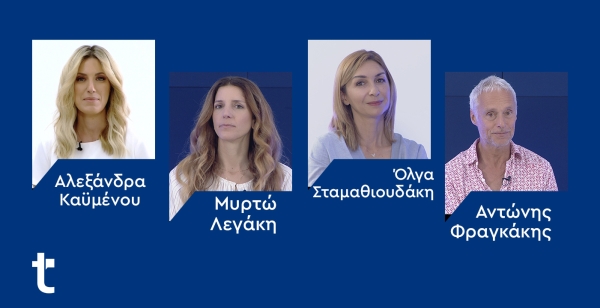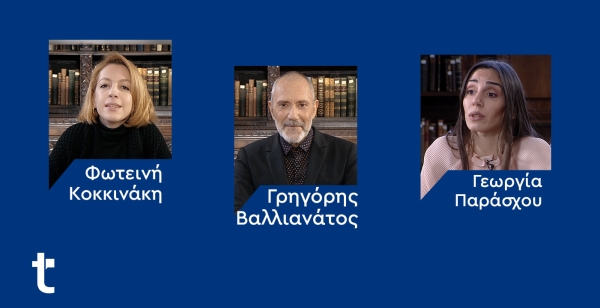How safe are we on the internet? What are the most common threats that occur? Should every business be shielded in advance and how is this done?
Moderator : Andreas Panagopoulos, Journalist
Experts:
Athanassios Staveris, Secretary General of Telecommunications & Posts of the Ministry of Digital Governance
Dr. Nikos Aroukatos, Professor of InformationSecurity, Metropolitan College, Lead AuditorISO 27001
To watch the whole video for free
How safe are we on the internet? Once we take advantage of the possibilities that the internet provides, as individuals, as businesses and organisations, even as states, we are at the same time exposed to several risks. Cybersecurity aims to manage the relevant risks that are constantly becoming more and more intense. We have heard many times about hackers who "attacked" websites and entire systems of banks and companies, asking for ransom to fix the problem.
The protection "shield" comes from well-trained e-Security personnel, who can detect when an attack has occurred or when it is about to occur and design an effective defense mechanism that covers all possible sources of attack.
What are the most common threats that occur? Should every business be shielded in advance and how is this done? Is protection an evolving and renewed matter? Also, can companies be taught a way of a first defense mechanism? Do we face more or less attacks in Greece in relation to international statistics?
In this Expert Talk, journalist Andreas Panagopoulos discusses the cybersecurity matter with Secretary General of Telecommunications & Posts of the Ministry of Digital Governance, Athanassios Staveris and Professor of Information Security at the Metropolitan College and ISO 27001 Lead Auditor, Dr. Nikos Aroukatos.
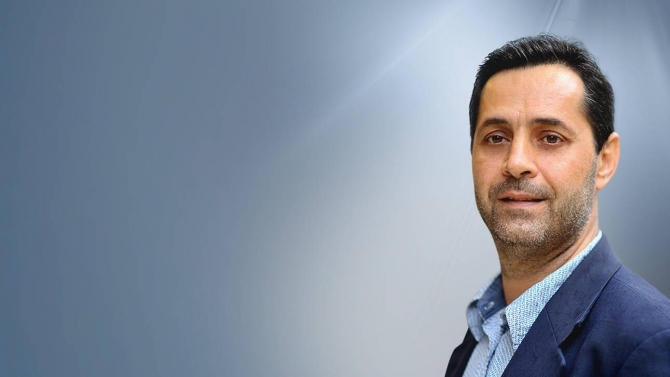
Andreas Panagopoulos is a journalist with many years of experience in television, digital and multimedia content production. Today he works in digital media of Alter Ego Media, as well as in the field of New Business Development. He worked for the organisation and management from scratch of the news sections of One TV and Mega Channel, until September 2020. He organised and directed the first Greek digital multimedia group of DPG media and in collaboration with CNN International, the Greek digital version of cnn.gr, where he was head of news and a key columnist. For more than seven years he was news director at Antenna TV, where he began his journalistic career in the early 1990s. He is a PhD candidate at the School of Journalism of the Aristotle University of Thessaloniki, while his scientific works have been published in collective volumes and scientific journals. His scientific interests include: media analytics, fake news, copyright and obligations of journalists, artificial intelligence and machine learning in journalism. He has taught as a visiting professor in the Postgraduate program of ECI "Quality Journalism-New Technologies" (QJNT), at the National School of Public Administration and at the Department of Communication & Media Studies of the National and Kapodistrian University of Athens. He has been awarded the Journalism Prize of the Botsis Foundation. He has received three awards at the Digital Media Awards (2014, 2015 and 2016).
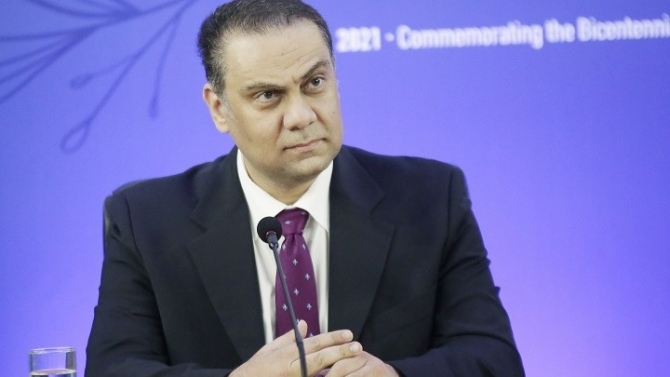
Athanassios Staveris is a graduate of the Department of Physics of the National Kapodistrian University of Athens and holds a postgraduate degree in Applied Physics and Mathematics from the National Technical University of Athens, a PhD in High Energy Physics from the National and Kapodistrian University of Athens and an Executive MBA from the University of Plymouth.
He has academic experience in the field of High Energy Physics working as a researcher in the CDF International Experiment in Fermilab, USA, and having won a European Scholarship (RTN scholarship) in collaboration with the National Institute of Nuclear Physics (INFN Piza Unit). In addition, he has more than ten years of experience working internationally in designing and implementing large-scale ICT projects in the private sector.
He specialises in data analysis, in the use of algorithms in Artificial Intelligence, Machine Learning (AI / ML) and text analysis using NLP (Natural Language Processing) methodologies. Since July 2019 he has been an advisor to the Minister of State and Digital Governance and has contributed decisively to the management of cybersecurity issues and the completion of the 112 service, in collaboration with the General Secretariat for Civil Protection.
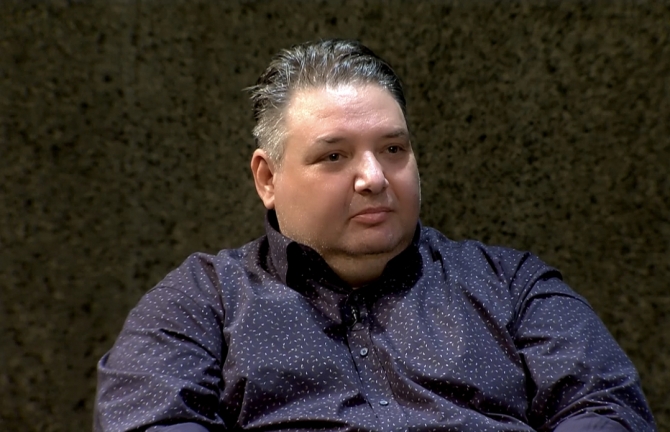
Dr. Nikolaos Aroukatos graduated from the Department of Mathematics of the University of Athens, received a postgraduate diploma from the Department of Informatics of the University of Piraeus and his doctorate from the same department, in the field of Information Systems Security. His research interests concern Cryptography, Steganography and the field of Number Theory. Since 2000 he has been working in the field of education and has worked as a research associate at the Technological Educational Institutes of Chalkida and Athens as well as a professor in public and private Educational Institutes (IEK). He is a laboratory associate and a postdoctoral researcher of the Department of Informatics of the University of Piraeus. He has worked as an IT manager in German, British and Greek companies. He has numerous publications in international scientific journals and international conferences and has authored chapters in scientific volumes.










